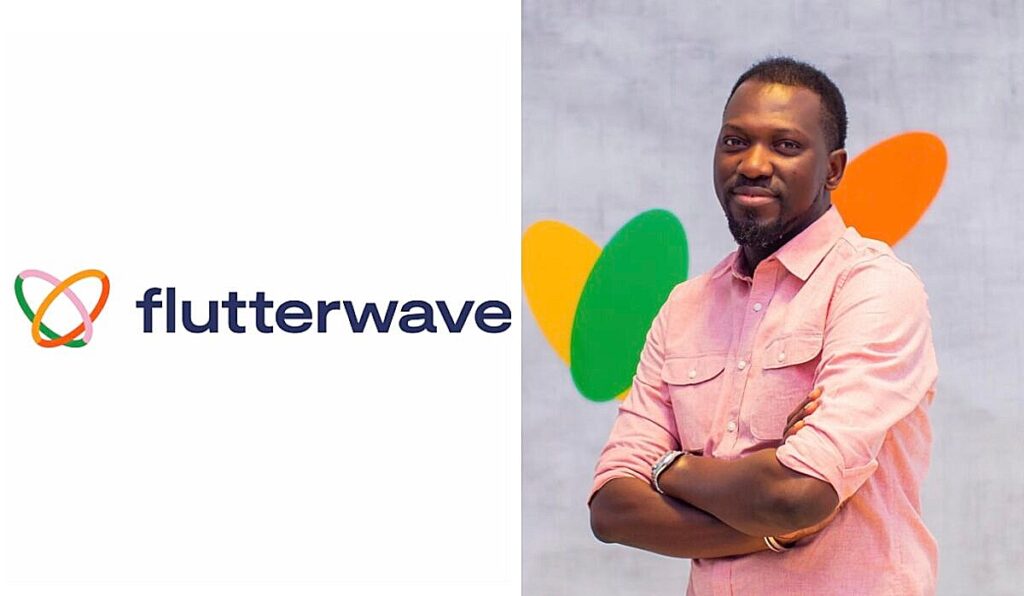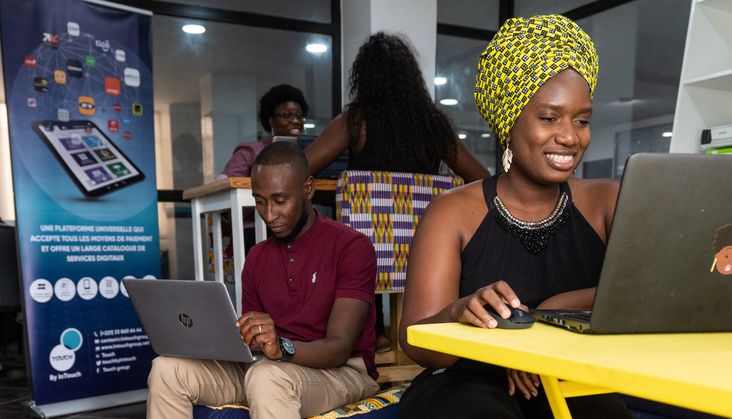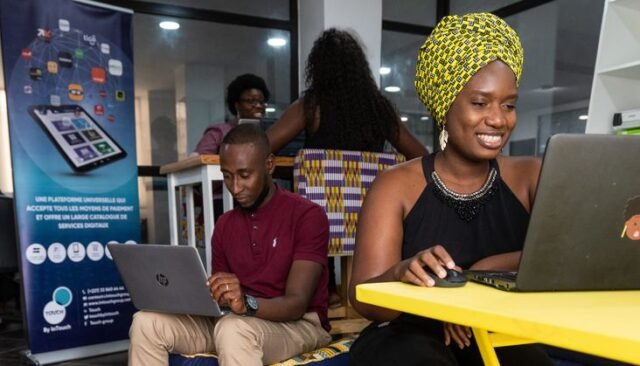As Africa enters an era of rapid digital transformation, 2025 emerges as a pivotal year for tech startups on the continent. From empowering underserved communities to driving climate resilience, the continent’s innovators are delivering solutions that are as ambitious as they are scalable. These startups are not just business ventures—they’re engines of societal change. In this feature, we profile dynamic African startups worth watching in 2025, each with a mission-driven approach and traction that signals growing influence.
Table of Contents
1. Flutterwave (Nigeria) – The Fintech Titan Scaling Across Borders
Flutterwave continues to shape the future of digital payments across Africa. Established in Lagos, it now operates in over 30 countries and has partnered with global players including PayPal, Visa, and regional banks. In 2025, Flutterwave launched a remittance service and an integrated digital store platform targeting SMEs—further cementing its role in empowering digital commerce and financial inclusion across the continent.
Why it matters: With strategic partnerships and deep regional adoption, Flutterwave exemplifies fintech innovation with both scale and impact.

2. PalmPay (Nigeria) – Becoming Africa’s “Smartphone‑First” Super‑App
Founded in 2019, PalmPay brims with ambition. Leveraging Chinese investment and strategic integration with Transsion’s mobile phones (Tecno, Infinix, Itel), PalmPay onboarded more than 35 million users and around 1 million SMB clients in 2025.
The company delivers bill payments, airtime top‑ups, bank transfers, microloans, and insurance. Its hyper‑localized approach and native app presence are setting it up as a powerful “super app” in West Africa.
3. Omniretail (Nigeria) – AI‑Driven B2B E‑Commerce for Informal Retailers
Omniretail is bridging a long-standing gap: digital supply chains for African “bottom‑of‑the‑pyramid” retailers. With explosive revenue growth (CAGR nearly 800% and featured as Africa’s fastest‑growing company by Financial Times in 2025), Omniretail taps AI to power procurement, stock analytics, and credit tools for informal shopkeepers.
The startup’s momentum and investor interest reflect how digitizing the informal retail sector meets both demand and impact head‑on.
4. mPharma (Ghana) – Democratizing Healthcare, One Pharmacy at a Time
Healthtech pioneer mPharma is tackling medicine affordability head on. Operating in over ten countries as of mid‑2025, they manage pharmacy inventories, pricing, and telemedicine solutions to improve access for underserved populations. Their Mutti+ health platform bundles diagnostics and low‑cost consultations.
By combining technology and micro‑level pharmacy operations, mPharma ensures patients in rural and urban areas get reliable and affordable access to medicines.
5. Spiro (Kenya) – Charging Africa’s EV Revolution with Battery Swaps
Kenya-based Spiro is accelerating urban clean mobility with electric motorbikes and battery swap stations across six African countries. Backed by large investments—including from Société Générale and Afreximbank—it is preparing to open assembly plants in Kenya and Nigeria in 2025.
Spiro’s range (75–90 km per charge), battery‑swap network, and mobile‑money enabled payments offer drivers affordable, sustainable transit alternatives.
6. BasiGo (Kenya) – Electrifying Public Transport at Scale
Another Kenyan startup, BasiGo, is deploying electric buses across East Africa. With $42 million raised, BasiGo’s zero-emission fleets respond to the urgent need for cleaner urban travel while easing the burden on fossil-fueled transport systems.
This is not only about cleaner air—it’s about redefining public transit with accessible and scalable green technology.
7. Talstack (Nigeria) – EdTech Built for Africa’s Skills Gap
Founded in 2023, Talstack is tackling the mismatch between workforce needs and educational content. Through a platform that diagnoses skills gaps, recommends micro‑learning modules, and tracks progress, it equips employees and businesses with practical, local insights. As of late 2024, Talstack raised $850K pre‑seed to expand.
By aligning learning directly with Africa’s evolving industries, Talstack offers scalable and measurable ways to future‑proof talent.
8. NeuRaL AI (Nigeria) – Embedding Generative AI in African Enterprise
NeuRaL AI launched REACTOR in 2024, a generative AI platform priced for SMEs that automates internal workflows, content creation, and smart tools integration. With Nigeria’s national AI strategy and a projected AI economy value of $8.75B by 2030, NeuRaL is well‑positioned for break‑out growth.
This kind of private-sector driven AI infrastructure is rare—and vital—for Africa’s digital economy.
9. CDIAL AI / Indigenius (Nigeria) – AI That Speaks Africa
The Centre for Digitisation of Indigenous African Languages (CDIAL), founded in 2021, developed Indigenius—a multilingual conversational AI platform supporting over 180 African languages. Boosting digital inclusion, their smart keyboard and dictionary tools bring native languages into tech ecosystems that often ignore them. With recognition from global accelerators like Google and Black Ambition, CDIAL is pulling language technology into Africa’s innovation narrative.

10. Tagaddod (Egypt) – Turning Waste into Renewable Energy
Tagaddod collects used cooking oil and transforms it into biodiesel feedstock for global markets. Its Uber‑style app collects waste across households, restaurants, and hotels, converting this into exportable sustainable aviation fuel. Founded in 2013, Tagaddod illustrates how cleantech can create jobs, reduce waste, and tap into global carbon‑offset value chains.
Why These Startups Matter: Three Key Drivers
1. Layered Innovation: Technology With a Purpose
These startups go beyond apps—they layer AI, data analytics, micro‑credit, or language localization onto foundational challenges: healthcare access, food distribution, climate adaptation, skills development. The common thread: they solve real problems at scale with efficient, tech‑infused models.
2. Regional Expansion Fueled by Policy and Infrastructure Shifts
2025 sees regional infrastructure builds—data centers, open banking APIs, stablecoin rails, satellite internet—and national AI strategies taking shape. Nigeria’s open banking rollout, Safaricom’s $500M AI fund, and cloud infrastructure investment from Equinix and MTN show momentum at a systemic level.
This macro shift empowers startups like NeuRaL AI, Omniretail, and mPharma to scale across borders more confidently.
3. Impact Meets Investors: Purpose-Driven Growth
From fintech giants like Flutterwave and PalmPay, to agritech-savvy Omniretail and agrifinance players like ThriveAgric and Pula (though not profiled here but part of the broader wave), Africa’s investors increasingly reward mission-aligned ROI. ESG-minded funds, diaspora capital, and regional VC firms are elevating startups with measurable societal outcomes.
Challenges They Face—And How They’re Tackling Them
- Regulatory complexity: Nigeria’s Central Bank fined Paystack ₦250M for compliance gaps in 2025, signaling that startups must embed robust KYC and FX management from day one.
- Infrastructure gaps: Despite mobile internet growth, only ~28% of Africans had basic mobile internet by 2024. Many startups are innovating around this via offline-capable apps, satellite connectivity, or voice interfaces.
- Funding scarcity outside big markets: While Nigeria and Kenya dominate startup activity, firms expand cautiously across regional regulatory environments and fragmented audiences. Still, frontrunners like Omniretail and Spiro are forging partnerships across West and East Africa.
A Closer Look: One User Story
Meet Amina, a micro‑retailer in Lagos, reliant on a small shop with limited credit and sporadic inventory. Through Omniretail, she accesses stock orders on credit, AI‑forecasted demand suggestions, and same‑day delivery—helping her grow by 30% in six months. Her success reflects how B2B retail innovation reshapes livelihoods across informal economies.

What Lies Ahead: Trends to Watch in Late 2025
| Trend | What to Watch |
|---|---|
| Climate-tech | More startups using carbon capture, renewable energy, circular waste models (e.g. Tagaddod, Octavia Carbon) |
| Local-language AI | Voice agents and NLP in Pidgin, Swahili, Amharic—who will follow CDIAL? |
| Ed‑Fintech hybrids | Platforms combining skills, credit, and services (Talstack, others) |
| Mobility infrastructure | Assembly plants, battery swaps, and EV credit (Spiro, BasiGo) |
| Cross-border fintech expansion | Platforms like Vesti, PalmPay, Chipper Cash scaling across African corridors |
Takeaway: Impact Is the New Currency
African founders aren’t just chasing valuations—they’re building systems of change. Whether it’s digitizing medicine, powering sustainable transport, or enabling language access, these ventures prove that impact-driven innovation can scale profitably.
By watching these 10 startups—and others like Pula, ThriveAgric, Zipline, CDIAL, and NeuRaL AI—investors and ecosystem partners can identify where Africa’s digital economy is not just growing… but transforming.
Join Our Social Media Channels:
WhatsApp: NaijaEyes
Facebook: NaijaEyes
Twitter: NaijaEyes
Instagram: NaijaEyes
TikTok: NaijaEyes





